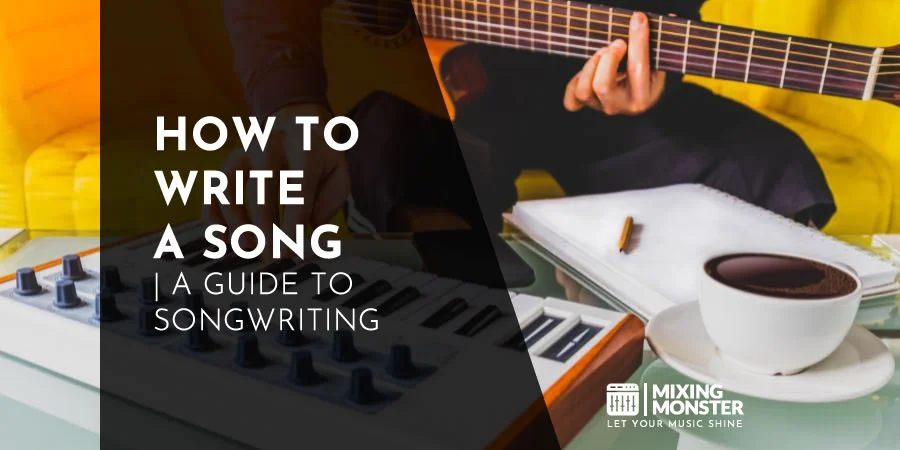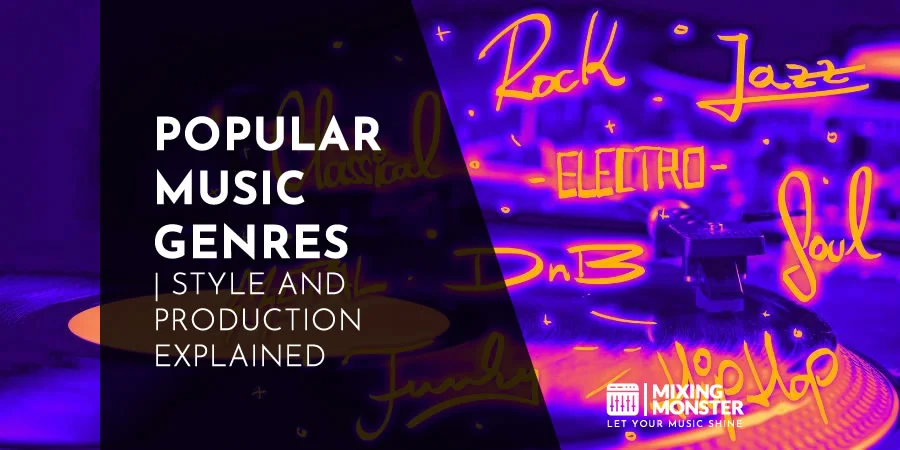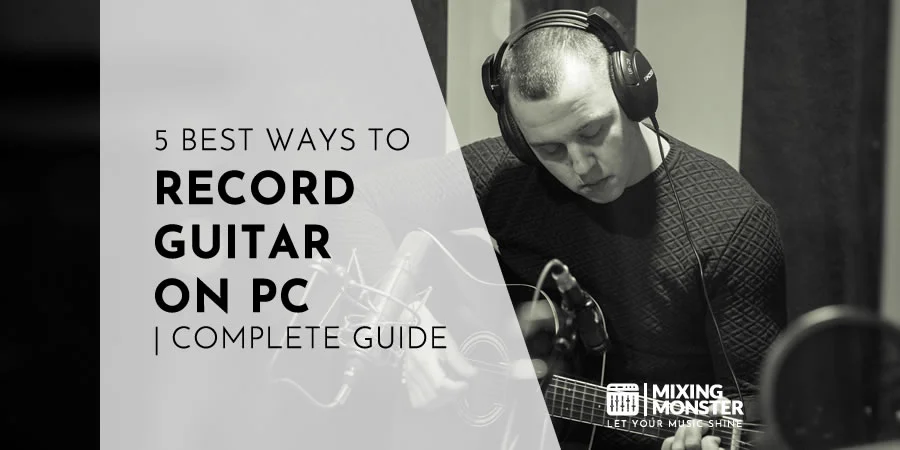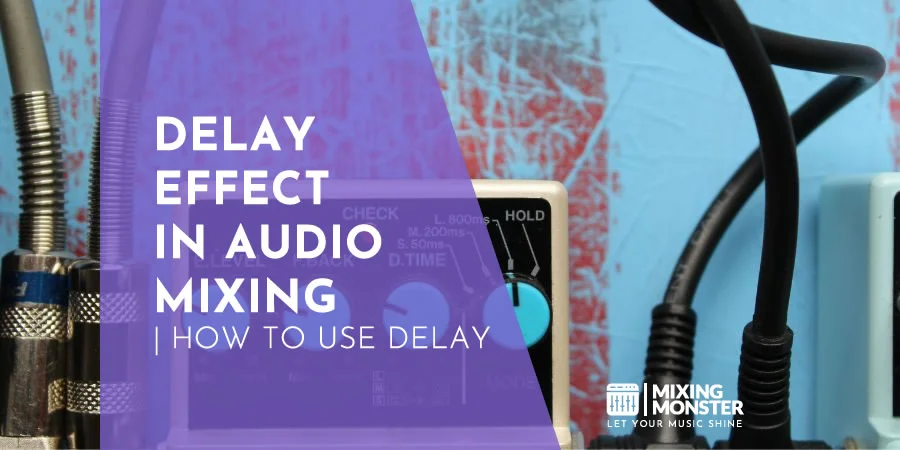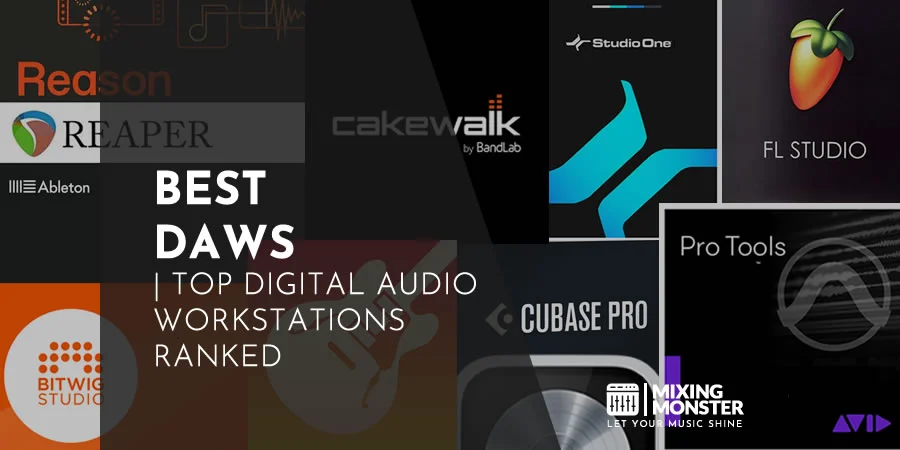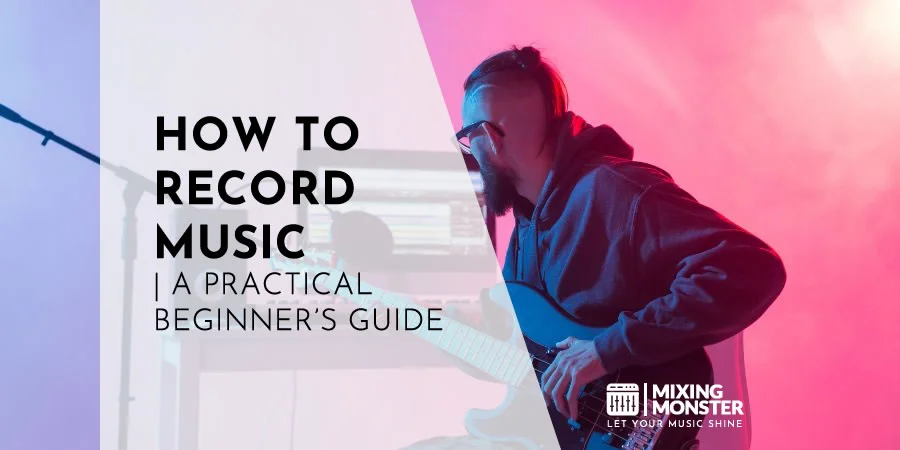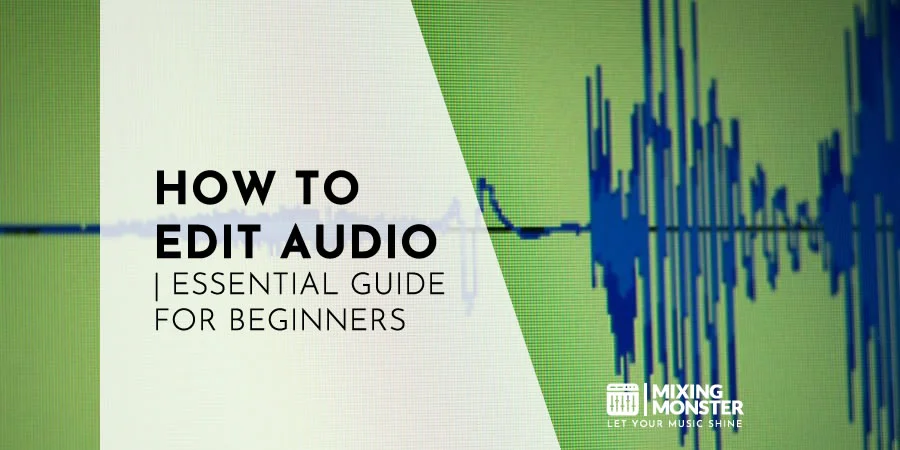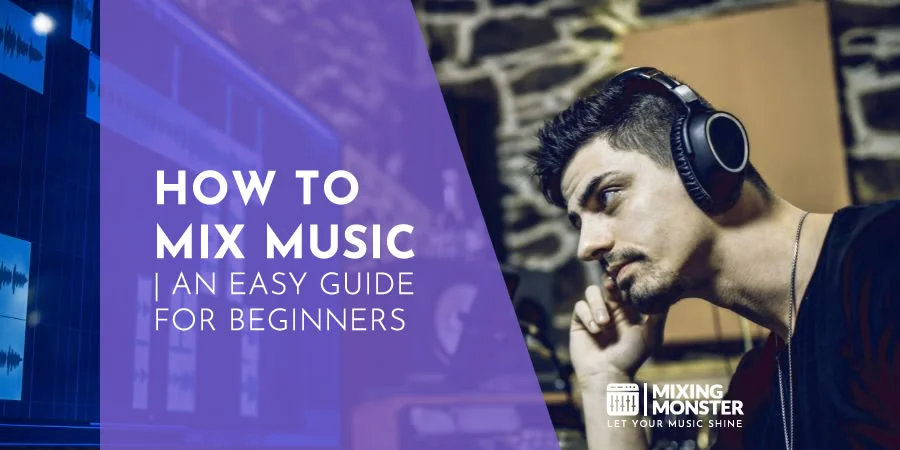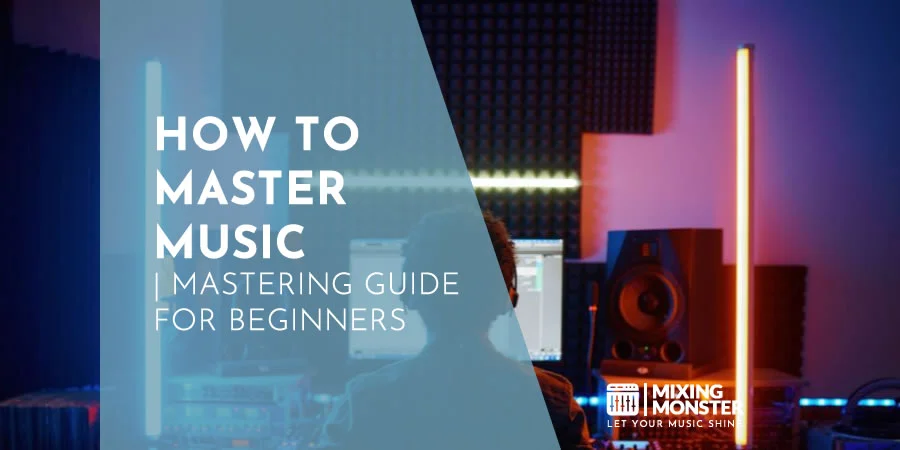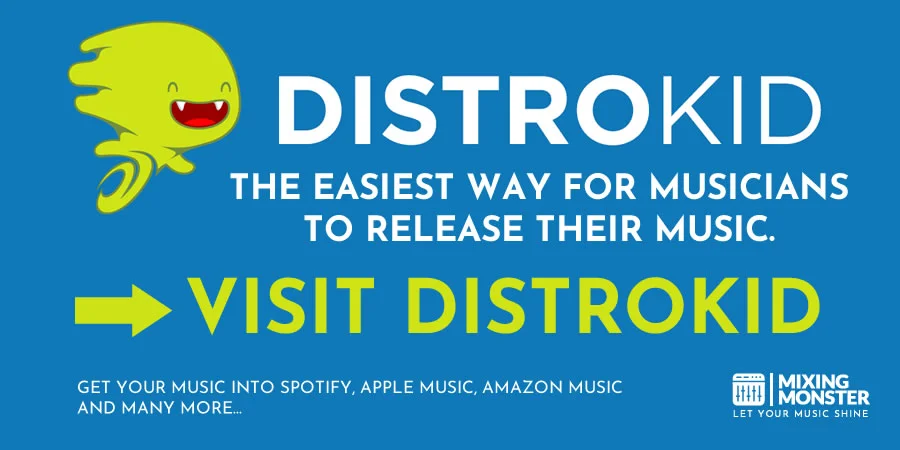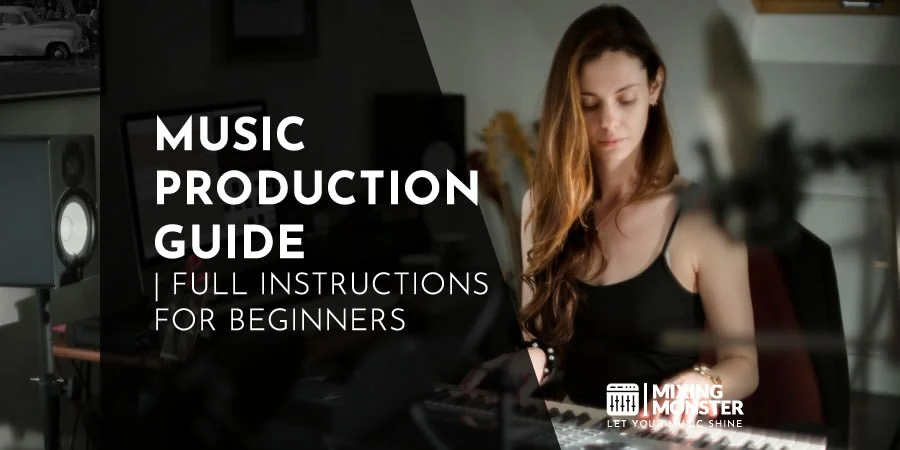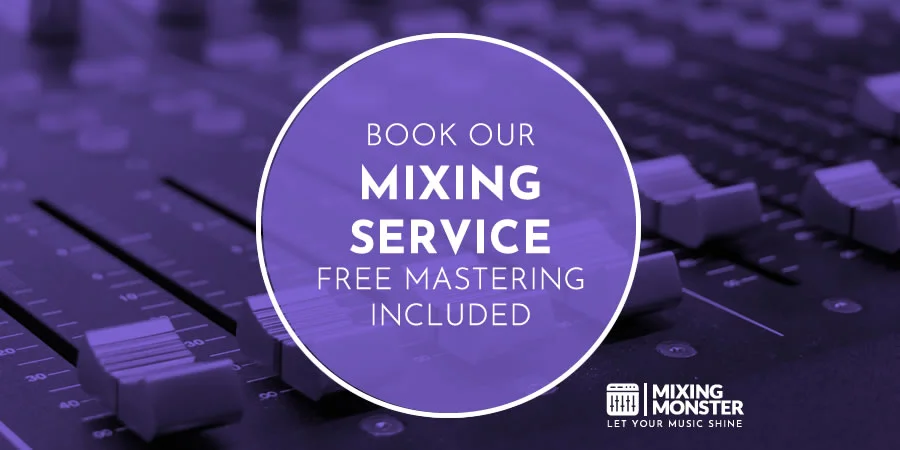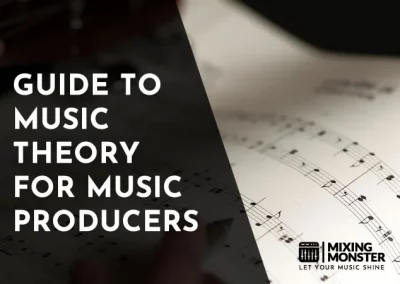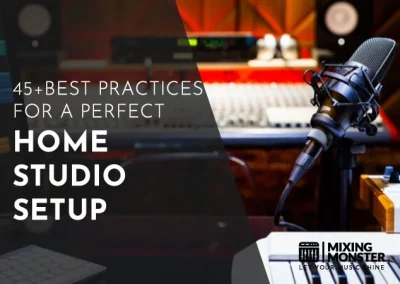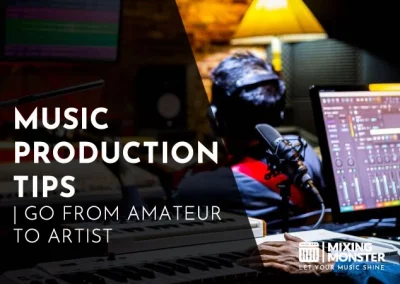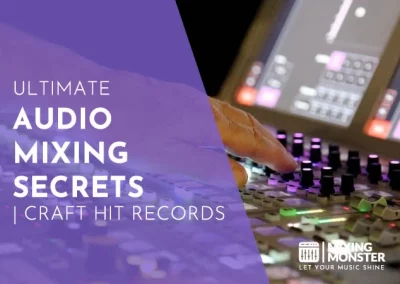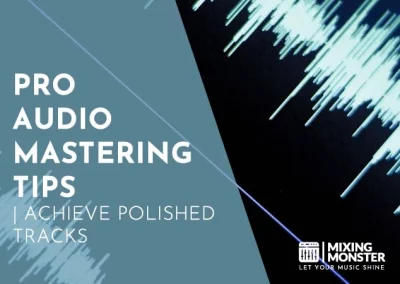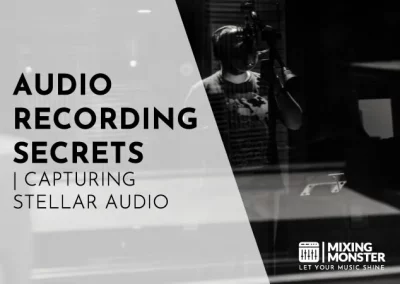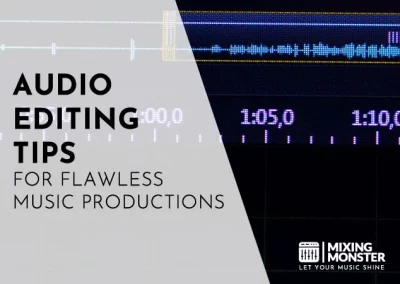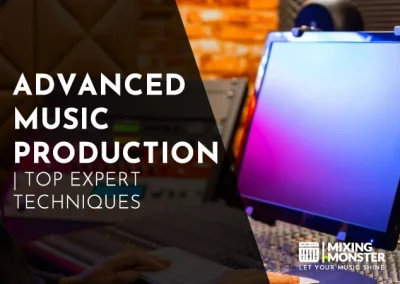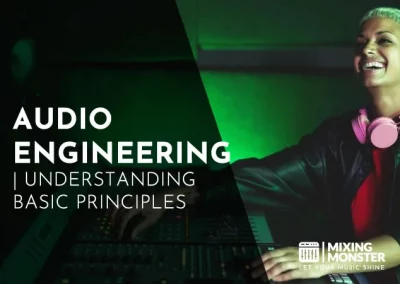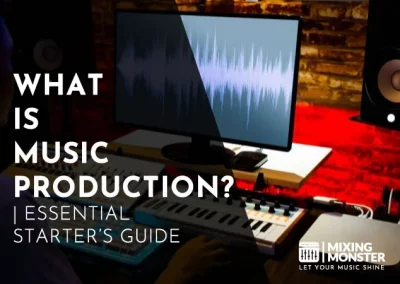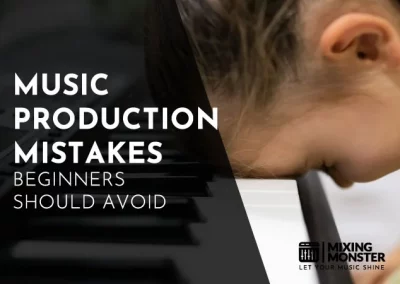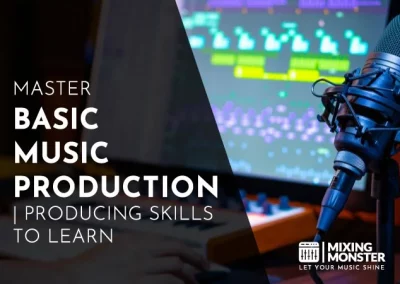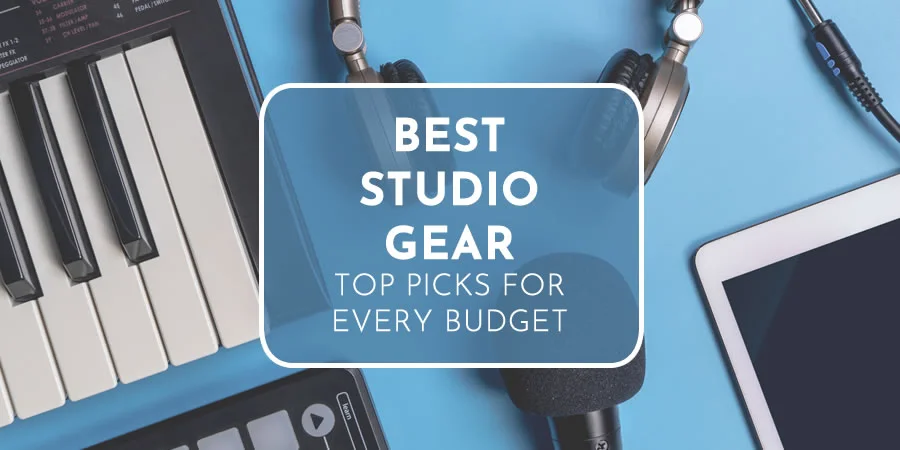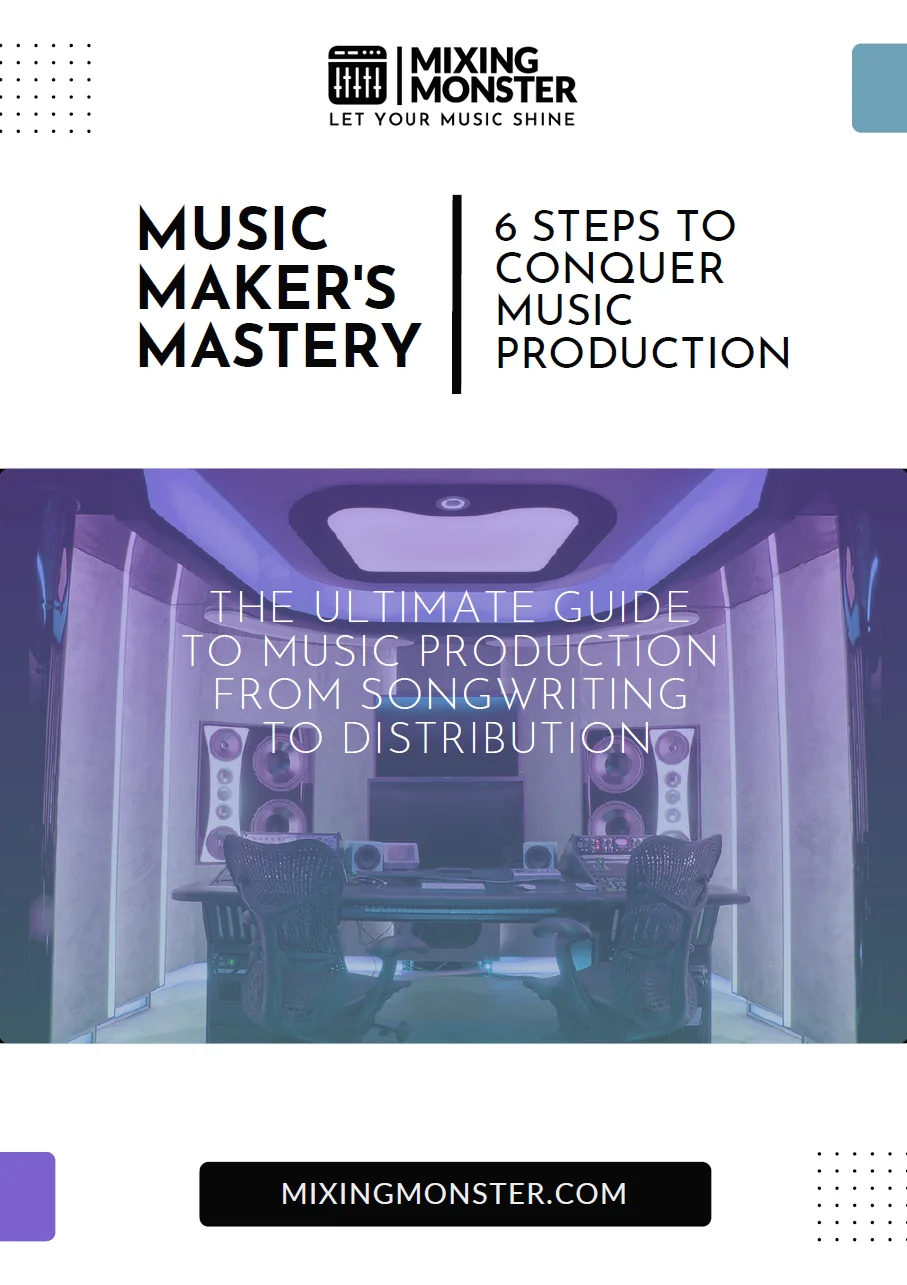Home > Blog > Music > Music Production
Affiliate Disclaimer: We may earn a commission if you purchase through our links
Songwriting is an art form that blends creativity with technical skill. The landscape of music production has evolved, offering a myriad of tools and techniques to transform a simple melody into a masterpiece. This guide will delve into the intricate process of how to write a song, explaining the nuances of audio engineering with the soul of songwriting.
Songwriting involves lyrical creativity, melodic innovation, and a profound understanding of music production. It integrates artistic talent with technical expertise. The synergy between these elements is essential in producing a song that meets the contemporary standards of music production and appeals to audiences and industry professionals.
As we venture deeper into songwriting, this guide will offer a comprehensive walkthrough of songwriting techniques across various genres and insights into the production process, like recording, editing, mixing, and mastering your work. Stay tuned as we explore different avenues for distributing your songs, ensuring your music resonates with your audience and stands out in the competitive realm of music production.
Table Of Contents
1. How To Write A Song: The Basics Of Songwriting
2. Songwriting In Different Music Genres
3. Advanced Songwriting Techniques
4. Important Audio Engineering Skills For Songwriters
5. Music Production Tools And Software For Songwriting
6. Recording Your Written Song
7. Editing Your Recorded Song
8. Mixing And Mastering Your Song
9. Distributing Your Music
10. The Songwriter’s Journey – Your Path To Success
11. FAQ

1. How To Write A Song: The Basics Of Songwriting
Getting Inspiration For Songwriting
Finding inspiration is the first step in the songwriting process. It’s about tapping into your experiences, emotions, and observations to create something unique and personal.
Inspiration can come from various sources – a conversation, a walk in the park, a book, or even a dream. The key is to be open and receptive to the world around you. Combine different experiences and feelings in an open minded way, in order to lay the foundation of your piece.
Keep a notebook or a digital recorder handy to capture those fleeting moments of inspiration, whether it’s a lyric, a melody, or a concept. Inspiration often strikes at unexpected moments!
Melody Creation In Songwriting
The melody is the soul of your song. It’s what people hum and remember. Creating an engaging theme involves experimenting with notes, rhythms, and scales.
Start by humming or playing with your instrument, letting your intuition guide you. Don’t be afraid to iterate; the best melodies often come from refinement and evolution.
Remember, a great melody should be both memorable and able to convey the emotion of your song effectively. Keep it simple: a perfect song stuns with creative and clear themes!
Crafting Compelling Lyrics In Songwriting
Lyrics give voice to your song’s soul. They tell your story and express your emotions. Good lyrics are relatable and evocative, creating a connection with the listener. Start by deciding on the theme or message of your song.
Use vivid imagery and powerful words to paint a picture or evoke an emotion. Pay attention to the flow and rhythm of your words – they should complement the melody and add to the song’s overall mood.
Harmonizing Melody With Lyrics
Harmonizing melody with lyrics is a delicate balancing act. The melody should support and enhance the lyrics and vice versa. This harmony creates a song that is cohesive and resonant.
Experiment with different chord progressions, rhythms, and melody alterations to see how they change the impact of your words. Sometimes, a slight change in melody or an unexpected rhythmic interruption or variation can give your lyrics a whole new meaning or emotional depth.
Essential Steps In Songwriting
- Find Inspiration:
Keep a journal for ideas, listen to various genres, and observe your surroundings. - Create A Melody:
Use an instrument or humming to experiment with tunes. - Craft Compelling Lyrics:
Write about personal experiences using vivid imagery. - Harmonize Melody And Lyrics:
Ensure they complement each other, and try different chord progressions. - Revise And Refine:
Edit your song for flow and coherence. - Seek Feedback: Share with trusted peers or mentors for constructive criticism.
2. Songwriting In Different Music Genres
Considering Genre In Songwriting
Each music genre has its unique characteristics and conventions. When writing a song, it’s essential to understand the stylistic elements of the genre you’re working in.
This understanding helps create music that resonates with the genre’s audience while allowing room for innovation and personal expression.
Adapting Songwriting Techniques To Genre
Adapting your songwriting to different genres can be both challenging and rewarding. It involves understanding the core elements of each genre and using them to shape your song.
For example, a pop song might emphasize catchy hooks and relatable lyrics, while a rock song might focus more on energy and instrumentation. Being versatile in your songwriting allows you to explore different facets of musical expression and reach a broader audience.
Want to learn more about how popular genres in music production? Here you go:
Structuring A Song
The song structure is a critical component of songwriting. It determines how your song unfolds and impacts the listener. Typical structures include intro-verse-chorus-verse-chorus-bridge-chorus-outro. A chorus could always have a pre-chorus as well.
However, feel free to experiment with unconventional forms, especially when working in genres more open to experimentation.
Creating Unique Elements In Songwriting
Creating unique song elements can help you stand out in a music-filled world. This could be a distinctive vocal style, an unusual instrument, or an unexpected turn in the song’s structure. These elements make your song memorable and define your signature style as an artist.
3. Advanced Songwriting Techniques
Structuring Songs For Emotional Impact
Compelling songwriting transcends basic melody and lyrics; it’s about crafting a journey for the listener. Structuring your song for emotional impact involves understanding how different parts of the music – verses, choruses, bridges – elicit various emotions.
For instance, a rising pre-chorus can build anticipation, leading to a powerful and cathartic chorus. Think of your song as a story, with each section contributing to the overall narrative and emotional arc.
Incorporating Instrumental Variations In Songwriting
Incorporating different instruments can significantly enhance the texture and mood of your song. Experimenting with various instrumental arrangements can bring a fresh perspective and breathe new life into your composition.
Consider how an acoustic guitar lends a different feel than an electric guitar or how a string section can add depth to an otherwise simple arrangement.
Understanding the role and impact of other instruments is vital to creating dynamic and engaging songs.
By the way, here are five best ways to record guitar on PC:
Experimenting With Song Dynamics
Dynamics in music refer to the variations in loudness. Playing with dynamics can significantly influence the emotional impact of your song. A sudden shift from a soft verse to a loud chorus can grab the listener’s attention and convey intensity.
Similarly, a gradual increase in volume can build suspense and excitement. Effective use of dynamics can turn a good song into a great one by adding an element of surprise and keeping the listener engaged.
Multi-Artist Collaboration In Songwriting
Collaborating with other artists can open up new avenues for creativity. Each artist brings their unique style, perspective, and skills to the table, leading to innovative and diverse compositions.
Collaborations can range from co-writing lyrics to combining different genres. The key is to remain open and adaptable, blending the strengths of each collaborator to create something truly unique.
4. Important Audio Engineering Skills For Songwriters
Understanding Gain Staging, EQ, And Compression
A fundamental aspect of audio engineering for songwriters is understanding gain staging, EQ (equalization), and compression.
Gain staging ensures that your audio levels are optimal throughout the recording and mixing process. EQ is about balancing the frequencies to make your song sound clear and balanced. Compression helps control your song’s dynamics, ensuring no part is too loud or soft.
Utilizing Effects And Processors In Songwriting
Effects and processors can dramatically alter the sound of your song. Reverb can add depth, delay can create a sense of space, and modulation effects like chorus or flanger can add texture.
Knowing how and when to use these effects is crucial; overuse can clutter your mix, while the right amount can enhance your song’s emotional impact.
Here are two articles about the most common effects of music production:
Tips For Self-Producing Artists
It’s essential for songwriters who produce their music to wear both hats effectively.
Focus on the songwriting first without getting too caught up in the technical details. Once you’re happy with the composition, shift to your producer role, considering how to record best, edit, mix, and master your song.
Keeping up to date with music production software and hardware can also greatly enhance your ability to self-produce high-quality music.

5. Music Production Tools And Software For Songwriting
Digital Audio Workstations (DAWs)
Digital Audio Workstations (DAWs) are indispensable tools for songwriters in music production. DAWs like Ableton Live, Logic Pro, or Pro Tools offer a comprehensive platform for recording, editing, mixing, and mastering your tracks.
They provide many features, including virtual instruments, MIDI support, and advanced editing capabilities. Choosing the right DAW that aligns with your workflow and musical needs is crucial in your songwriting journey.
Find out more about the best DAWs for music production in this comparison:
Audio Hardware For Songwriting
While software is a crucial component in music production, hardware also plays a significant role.
Good-quality microphones, audio interfaces, headphones, and studio monitors can significantly improve the recording quality and production process.
Investing in reliable and suitable audio hardware is essential for capturing the true essence of your music.
Essential Audio Hardware for Songwriters
| Hardware Type | Product Example | Description | Ideal For |
| Microphone | Shure SM7B | A versatile, studio-quality microphone, excellent for vocals and instruments | Home studios, podcasting, professional recording |
| Audio Interface | Focusrite Scarlett 4i4 | A reliable interface with high-quality preamps and simple usability | Beginners, home studio setups |
| Headphones | Audio-Technica ATH-M20x | Professional-grade headphones offering exceptional clarity and comfort | Mixing, monitoring, casual listening |
| Studio Monitors | KRK Rokit RP7 G4 | Popular monitors known for their clear sound and low-end response | Mixing, mastering, home studios |
| MIDI Keyboard | Akai MPK Mini | A compact and affordable MIDI keyboard with pads and knobs for control | Songwriting, beat-making, portable setups |
Essential Audio Plugins for Songwriters
Audio plugins extend the capabilities of your DAW, offering additional processing power, effects, and virtual instruments.
These plugins can enhance and polish your tracks from reverb and delay to EQ and compression. Many DAWs come with various built-in plugins, but numerous third-party options can offer more specialized functionalities.
Essential Audio Plugins for Songwriters
| Plugin Type | Product Example | Description | Ideal Use |
| Reverb | Valhalla VintageVerb | A versatile reverb plugin with a range of vintage and modern sounds | Creating spatial depth, enhancing vocals and instruments |
| Equalizer (EQ) | FabFilter Pro-Q 3 | A high-quality EQ plugin offering precise frequency control | Balancing track frequencies, solving sound issues |
| Compression | Universal Audio 1176LN | A classic compressor known for its fast attack and characteristic sound | Controlling dynamics, adding punch to tracks |
| Delay | Soundtoys EchoBoy | An advanced delay plugin with a wide range of echo effects | Adding rhythmic interest, depth to vocals and instruments |
| Virtual Instruments | Spectrasonics Omnisphere | A powerful synthesizer offering a vast library of sounds | Crafting unique melodies, adding texture to compositions |
The Power Of Virtual Instruments In Songwriting
Virtual instruments have revolutionized the songwriting process. They allow songwriters to incorporate a wide range of sounds – from orchestral instruments to synthesizers – without needing the physical instrument.
This opens up endless creative possibilities, enabling songwriters to experiment with different textures and timbres while composing.
6. Recording Your Written Song
Preparing For The Recording Session
Before hitting the record button, preparation is vital. This includes choosing the right environment, setting up your equipment correctly, and ensuring that your instruments are in tune.
It’s also important to have a clear vision of what you want to achieve in the session, whether laying down a basic track or capturing a full-band performance.
Capturing The Perfect Take
Recording is where your song starts to come to life. Focus on capturing a performance that conveys the emotion and energy of your piece.
This may require several takes, and that’s perfectly normal. Be patient, give yourself the freedom to experiment, and find the interpretation that best represents your vision.
A proper and high-quality recording session is the foundation of your track. Do not rely on editing or mixing to fix bad recordings. Make your take a perfect one every time!
Overdubbing And Layering Tracks
Overdubbing involves recording additional parts over the initial track. This could be harmonies, auxiliary instruments, or counter-melodies. Layering tracks adds depth and richness to your song.
It’s important to be mindful of not overcrowding the mix, ensuring each element has its place and contributes to the overall sound.
Always make sure to check the phase of multi-layer recordings as well!
7. Editing Your Recorded Song
Polishing The Perfect Take
Once you’ve recorded your song, the next step is editing. This phase is about refining and polishing the recorded material. It involves trimming the tracks for timing, cleaning up any background noise or unwanted sounds, and ensuring a smooth song flow.
Editing is a meticulous process, requiring a keen ear and attention to detail, as it can significantly impact the final quality of your music.
Applying Basic Audio Editing
Basic audio editing techniques include:
- Adjusting the start and end points of tracks.
- Using fade-ins and fade-outs to eliminate abrupt changes.
- Aligning tracks to ensure proper timing.
These edits can significantly enhance the overall sound and coherence of your song. It’s important to be judicious in editing, maintaining the natural feel and dynamics of the performance.
8. Mixing And Mastering Your Song
Audio Mixing Overview: Balance Your Song
Mixing is where you balance the various elements of your song. It involves adjusting levels, panning, EQ, and adding effects to create a cohesive and sonically pleasing track.
A good mix should highlight the song’s strengths and ensure clarity, where each part of the arrangement can be heard and appreciated. Mixing is both an art and a science, requiring a good understanding of sound and a creative touch.
Mixing can be described in one word: Balance! Find out more about to mix a song here:
The Final Step: Mastering Your Track
Mastering is the final step in the production process. It involves fine-tuning the overall sound, ensuring consistency across the album, and preparing the track for distribution.
Mastering can enhance your track’s overall loudness, clarity, and polish, making it ready for public consumption. This process requires a critical and experienced ear and a good understanding of various audio formats and distribution platforms.
Mastering your song is the final step in any music production. Find out more about how to master music here:
9. Distributing Your Music
Navigating Music Distribution Platforms
In today’s digital age, there are numerous platforms for managing and distributing your music. Platforms like Distrokid make sure your music gets placed on various platforms like Spotify, Amazon Music or Apple Music.
These platforms offer different features and reach diverse audiences. Understanding music distribution and choosing the right one for your music is crucial.
Check out Distrokid for quickly releasing your music!
Marketing Your Song Effectively
Marketing is vital to ensuring your music reaches its intended audience. This includes creating an engaging online presence, using social media strategically, and collaborating with influencers or other artists.
Creating compelling content around your music, like music videos or behind-the-scenes footage, can also enhance your marketing efforts.
Building An Online Presence
An online presence is essential for any modern musician. This involves having a professional website, active social media accounts, and a consistent brand image.
Engaging with your audience online through regular updates, responding to comments, or sharing new content helps build a loyal fanbase.
10. The Songwriter’s Journey – Your Path To Success
Summarizing Songwriting
Songwriting is a journey of creativity, emotion, and technical skill. It’s about expressing yourself through music and connecting with others through your art. Whether you are a beginner or an experienced songwriter, there’s always room for growth and exploration.
Check out our guide on music production to get your projects going the right way!
Exploration And Experience: Never Stop Creating Music!
Music is ever-evolving, and as a songwriter, you should continually seek to evolve with it. This means exploring new genres, collaborating with other artists, and staying up-to-date with the latest music production technologies. Always be open to learning and experimenting.
Steps To Take For Aspiring Songwriters
For those just starting their songwriting journey, the key is to start writing and keep writing. Practice is essential. Feel free to share your work and seek feedback.
Connecting with other musicians and industry professionals can provide valuable opportunities and insights.
Already got a recorded song? We take care of the rest to make it perfect:
Happy songwriting!
11. FAQ
- What Are The Key Elements Of A Successful Song?
A successful song typically combines a memorable melody, compelling lyrics, strong structure, and effective production. It should evoke emotion and connect with the listener. - How Does Genre Affect Songwriting?
Genre can dictate a song’s structure, instrumentation, lyrical themes, and overall style. Understanding the conventions of a genre can guide songwriting while leaving room for creativity. - What Are The Most Important Audio Engineering Skills For Songwriters?
Basic recording techniques, understanding EQ and compression, effective use of effects and processors, and a good grasp of mixing and mastering are essential. - How Can Technology Enhance Songwriting?
Technology, through tools like DAWs and virtual instruments, offers songwriters vast creative possibilities, allowing for experimentation and innovation in songwriting. - What Are Effective Strategies For Distributing And Promoting Songs?
Utilizing digital platforms, engaging in social media marketing, building an online presence, and connecting with fans are effective strategies for song promotion.

